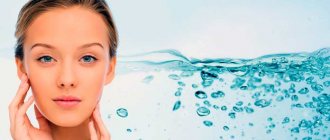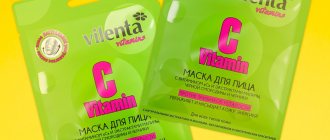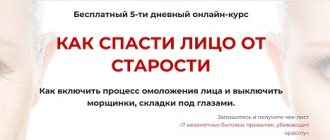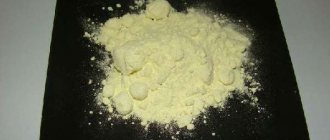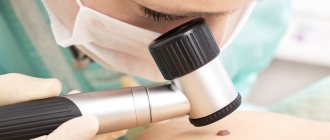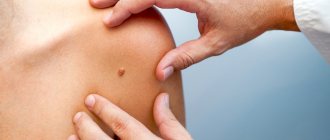Sulfur is one of the most important elements because it is involved in the construction of the human body. This element is necessary for life. Determines health status and appearance.
It is becoming increasingly popular in cosmetics due to its beneficial effect on the skin and regeneration processes. It is thanks to sulfur that a person’s skin looks healthy, hair is strong and shiny, and the circulatory and nervous systems work effectively.
Helps fight acne and seborrhea. Lack of the mineral causes keratosis and hair loss. Negatively affects the condition of the skin and nails.
Beneficial properties of sulfur for the body
Sulfur is a macronutrient found in every cell of the body. It ranks fourth in the hierarchy of macroelements necessary for human life.
At room temperature it appears as a yellow solid. In the form of dust, it irritates the mucous membranes of the eyes and respiratory tract. However, sulfur does not cause poisoning in the body.
Contained in all cells of the human body as a component:
- Protein structures;
- Vitamins;
- Brain tissue, muscles and bones;
- Two amino acids (methionine and cysteine);
- Hormones, including insulin;
- Coenzymes.
It is also part of collagen, which is responsible for the condition of skin and hair.
No other mineral is involved in metabolism in such a multifaceted way. This is a kind of intermediate link in the process of metabolism of proteins, minerals and vitamins.
The unique properties of sulfur have been known since ancient times. Possesses:
- Bactericidal;
- Anti-inflammatory;
- Antiseptic;
- Antifungal;
action.
Affects the regulation of hormonal balance. Calms, preventing mood swings. A lack of sulfur can lead to:
- Depression;
- Anxiety;
- Cataract;
- Decreased immunity;
- Disruption of blood supply processes.
Depends on sulfur:
- Fat and carbohydrate metabolism;
- Cell regeneration;
- Cellular respiration;
- Energy processes.
Responsible for the proper functioning of joints. Relieves inflammation and improves the regeneration of articular cartilage.
Used as an aid in the treatment of:
- Rheumatic diseases;
- Joint degeneration;
- Gout;
- Arthritis.
Shortage:
- Reduces joint flexibility, increasing the risk of injury;
- Leads to damage to the bones, which begin to rub against each other and wear out at the point of contact.
A popular method of treating rheumatic and degenerative diseases is sulfide baths. Used as rehabilitation therapy after sprains or orthopedic surgeries.
Sulfur:
- Responsible for the proper process of removing toxins from the liver.
- Increases the secretion of bile acids.
Sulfur supplements are recommended for smokers because they bind nicotine and heavy metals into compounds that are subsequently removed from the body.
Helps the liver remove toxins from mushroom poisoning. Used in the treatment of systemic mycoses.
Sulfur, together with other elements such as manganese and phosphorus, determines the proper functioning of the nervous system.
Low levels in the body impair the absorption of other elements, including:
- Potassium;
- Chlorine;
- Yoda;
- Gland;
- Silicon;
- Magnesium;
- Manganese
which leads to a lack of these nutrients.
The reasons for insufficient sulfur in the body may be:
- Nutrition;
- Ionizing radiation;
- Chronic diseases such as rheumatoid arthritis, coronary heart disease, liver damage.
In addition, changes in the color of the iris occur in the form of a ring that appears around the circumference.
The adult human body contains about 100 grams of sulfur. Sulfur is not a typical nutrient, so the daily requirement for this mineral cannot be determined by weight or even in total.
However, it is believed that 0.25 percent of a person is made up of sulfur. Therefore, the consumption rate is close to the daily protein requirement.
It is worth emphasizing that there are no symptoms of overdose, since sulfur is excreted in the urine.
Where is it used?
Pharmacy sulfur is used to treat various diseases; medicines based on this trace element can quickly eliminate the manifestations of articular and dermatological pathologies.
What does sulfur help with:
- allergies and dermatological diseases;
- bronchial asthma;
- arthritis, scoliosis, bursitis, osteoarthritis, myositis, sprains;
- convulsions;
- as an anti-inflammatory and analgesic;
- to strengthen the immune system, speedy recovery after long-term illnesses;
- to reduce the body's need for insulin in diabetes mellitus.
Read also: Beneficial properties of whey
In cosmetology, products with sulfur are used to prevent early aging, improve the appearance of the skin, give strength and shine to hair, and strengthen nail plates.
Sulfur is used in cosmetology
For external medicinal preparations, precipitated (purified, combustible) sulfur is used; it is part of sulfur ointment, which is prescribed for the treatment of scabies, seborrhea, and psoriasis. In combination with lanolin, petroleum jelly, and stearic acid, the microelement has an anthelmintic, exfoliating and anti-inflammatory effect - such drugs are prescribed to eliminate rosacea and scalp lesions.
Purified sulfur in the form of tablets is used in the treatment of enterobiasis, constipation, and as an external remedy for the treatment of dermatological pathologies. In the form of a yellow powder, the product is used in folk and traditional medicine; it can be used internally and in the preparation of medicines.
Homeopathic sulfur has a weak therapeutic effect; it is produced in the form of granules; the drug must be taken for a long time under the supervision of a specialist.
Sulfur is useful not only for people, but also for animals - the feed product is included in vitamins for animals. This microelement is also used to enrich fertilizers in agriculture, in the production of steel and rubber, explosives, and pyrotechnics.
Beneficial properties of sulfur in cosmetics
The chemical element is used in the production of cosmetic care products for:
- Faces;
- Bodies;
- Hair.
Is a building element:
- Zubov;
- Hair;
- Nails.
Alpha-lipoic acid, which contains sulfur in its structure, neutralizes free radicals, restores reduced amounts of other antioxidants, including vitamins E and C. It has an exfoliating effect and smoothes the skin.
Together with L-carnitine, it exhibits detoxifying and antioxidant properties, which allows its use in anti-aging procedures.
Biotin is vitamin B7 or vitamin H, a compound that is resistant to heat and UV radiation. Participates in the synthesis of keratin and a substance that binds dead skin cells, hair and nails.
Helps smooth out wrinkles, regulates skin lipid metabolism and suppresses the activity of the sebaceous glands.
Together with vitamin K, it participates in the synthesis of prothrombin and supports the functioning of the immune system.
Biotin is a cosmetic ingredient:
- Skin and hair care;
- Anti-aging products for internal and external use;
- For the treatment of acne and brittle nails.
Cosmetics with sulfur have:
- Bactericidal;
- Calming;
- Disinfectant;
- Anti-inflammatory;
- Cleansing;
- Knitting
effect.
Supports the natural regeneration processes of the epidermis. Softens, smoothes and cares for rough skin. Rejuvenates the skin, restores softness and elasticity.
Thanks to the properties:
- Regulates the secretion of sebum;
- Relieves skin irritations;
- Improves epidermal restoration;
- Helps remove dead skin cells;
- Reduces the occurrence of acne;
- Reduces excess callosum;
- Fights dandruff.
The deficiency leads to:
- Excessive keratosis of the epidermis;
- Pale skin;
- Flabby connective tissue;
- Brittle hair and nails;
- The appearance of dandruff.
Instructions for using sulfur
Before using sulfur-containing drugs, you should definitely consult a specialist. Only a doctor can select the optimal and safe dosage of the drug.
Sulfuric ointment
The product for external use has disinfectant, antiparasitic, antiseptic, and antimicrobial properties. The ointment is prescribed as part of complex therapy for the treatment of lichen, psoriasis, seborrhea, elimination of fungal infections, scabies, and demodicosis.
Sulfur ointment should be applied 1–3 times a day to dry, cleansed skin, the duration of treatment is 5–10 days.
Read also: What happens to the body when you quit smoking?
Sulfur powder for internal use
Purified sulfur in powder form helps with enterobiasis, obesity, problems with hematopoiesis; the precipitated product can also be used, but it often provokes the development of flatulence.
How to take the medicine:
- For the treatment of advanced skin and fungal diseases, only purified medical sulfur is suitable; it should be taken 0.5–1 g in three divided doses with meals. Duration of therapy is 3–4 weeks.
- With enterobiasis. The dose for adults is 1 g, for children over 6 years old – 0.5 g, under 5 years – 0.25 g. The medicine should be taken three times a day for 5 days. After which you need to take a four-day break, give cleansing enemas with soda every evening. To completely get rid of parasites, 3–5 courses will be required.
- As an expectorant and general tonic – 0.25 g with the morning meal.
Medical sulfur should be taken with food
Sulfur is best absorbed when combined with iron and fluoride. Barium, lead, selenium, molybdenum reduce the percentage of microelement absorption.
Brewer's yeast with sulfur
At the pharmacy you can buy vitamin food supplements based on yeast and sulfur - Evisent, AMT, Bioterra, they contain all the necessary elements to improve the condition of hair, nails, rejuvenate facial skin, and maintain health.
Indications for use:
- manifestations of deficiency of B vitamins;
- recovery period after surgery and long-term illness;
- exhaustion of the body, passion for strict diets;
- pathologies of an endocrine nature - diabetes mellitus, thyroid disorders, obesity, hormonal imbalance;
- diseases of the digestive system, deterioration of blood clotting;
- nervous, physical, mental fatigue;
- for the prevention of cardiovascular diseases;
- dermatological diseases - acne, acne, furunculosis.
Brewer's yeast with sulfur improves skin, hair and nails
Tablets should be taken in 6-15 pieces. daily in 3 doses for 2-3 months, after which you need to take a break for six months.
Sulfur-based preparations are contraindicated during pregnancy and lactation; they are not used to treat children under three years of age.
At the initial stage of using sulfur-based preparations, rashes may appear, the skin begins to peel off severely, sometimes a laxative effect is observed - these are not side reactions, such a reaction is provoked by the strong antiseptic and anti-inflammatory properties of the trace element, all pathogenic microorganisms are drawn out through the skin.
Chewable sulfur
A natural alternative to chewing gum, it consists entirely of larch resinous compounds and has an antimicrobial effect. Chewing sulfur returns the natural color of tooth enamel, prevents the development of caries, periodontal disease, periodontitis, inflammatory processes in the oral cavity, helps cope with toothache, and is indispensable for stomatitis and sore throat. Experts recommend chewing sulfur twice a day for 30 minutes.
Read also: What foods contain vitamin A
Larch chewing gum helps to quit smoking and avoid overeating.
Chewing sulfur helps get rid of oral diseases
Sulfur in folk medicine
Sulfur helps get rid of colic and prevent hernia in children - the powder on the tip of a knife should be added to milk or other food. You should first consult with a surgeon or pediatrician.
- Purified sulfur powder is taken 1 g three times a day for dermatological problems. To treat diathesis in children, you can prepare an ointment from an equal amount of sulfur and fatty sour cream, lubricate the affected areas 1-2 times a day after water procedures. The mixture can be used even for newborns after prior consultation with a pediatrician.
- The recipe for a universal mash to eliminate inflammatory processes on the face is to combine 50 ml of boric acid with ethyl alcohol, add 7 g of medical sulfur, 1 tablet of acetylsalicylic acid. Shake, pour into a dark glass container, store in the refrigerator, wipe the inflamed areas morning and evening.
Sour cream and sulfur are good for treating skin diseases in children
Who is it suitable for?
Due to its healing properties, cosmetics with sulfur are suitable for caring for:
- Problematic;
- Acne;
- Seborrheic;
- Bold
skin.
Recommended for those who suffer from:
- Atopic dermatitis;
- Seborrhea;
- Psoriasis.
Cutaneous seborrhea and acne can be dangerous to health. Pimples, blackheads, and purulent acne are a breeding ground for the development of bacteria.
Cosmetics with sulfur not only cleanse the skin, but also:
- Normalizes sebum secretion;
- Smooth out;
- Calm;
- Relieves inflammation;
- Cleanses and tightens pores;
- Lightly moisturize.
In addition, they improve skin tone.
The ability to regulate sebum production is beneficial for those struggling with dandruff. Dandruff can also be accompanied by itching or seborrhea of the scalp.
Special cosmetics with sulfur:
- Exfoliates;
- Regulates the functioning of the sebaceous glands;
- Stabilizes skin condition;
- Helps strengthen hair follicles;
- Reduces hair loss.
How does sulfur treat acne?
To understand how sulfur combats an acne diagnosis, it is necessary to understand how these pesky pimples occur in the first place.
Hormonal changes and other factors increase the production of androgens (such as dihydrotestosterone, which stimulates the production of more sebum).
When too much sebum is produced, pores become clogged. In turn, this creates a favorable environment for bacteria, and they begin to multiply.
As a result, due to the body's immune response, pimples swell and become bright red. You can read more about the mechanism of acne here.
Sulfur dries out the skin. Since acne is caused by excess sebum production in the sebaceous glands, sulfur can help those who have oily skin and frequent breakouts.
It is also an excellent keratolytic. When applied topically to the skin, it causes the top layer of the epidermis to dry out and gradually peel off. This removes dead skin cells, unclogs pores and leaves them unblocked. A new layer of smooth skin grows in place.
Sulfur also has antibacterial properties, helping to fight p. acnes.
However, sulfuric acid treatment is not suitable for all skin types and acne. Many dermatologists believe that the use of sulfur for acne is justified only for people with oily skin, since it greatly dries it out, eliminating excess oil that clogs the pores.
In contrast, sulfur treatment may have a negative impact on patients with combination or dry skin, as the excess drying effect will lead to painful irritation and flaking of the skin.
Acne sulfur is effective for mild to moderate acne, but is unlikely to help with cystic breakouts and more serious problems. Although it can be used spot on acne, especially in the form of an ointment, to reduce drying.
In addition to treating acne, sulfur is used for seborrheic dermatitis, rosacea, eczema and dandruff. That is why it is often added to various shampoos and soaps.
Cosmetic products with sulfur
Due to its properties, sulfur is called the “element of beauty” and is increasingly becoming a component of innovative cosmetics. The advantage of such products is rapid skin regeneration while slowing down the aging process.
Sulfur compounds, such as barium sulfate, have a covering effect and can be used as a component of facial powders.
Magnesium sulfate with astringent, mild analgesic and anti-inflammatory properties. Relieves symptoms of excessive sun exposure. Often used in tanning products and bath salts.
The cosmetics industry offers a wide range of sulfur cosmetics for the care of:
- Face;
- Hands;
- Body;
- Hair;
- With fingernails.
Sulfur-containing compounds can be used in products such as:
- Cream;
- Shampoos;
- Bath products;
- Masks;
- Shower gels;
- Soap;
- Hair conditioners.
Sulfur soap
Sulfur soap is a natural cosmetic product designed to care for problematic skin, especially oily, seborrheic and acne-prone skin.
Sulfur regulates excessive secretion of sebum and has a bactericidal and anti-inflammatory effect. Helps with acne and skin inflammation.
Additionally softens the calloused epidermis, thereby helping to remove the contaminated outer layer. Adding, for example, olive oil or mink oil gives:
- Anti-aging properties;
- Reduces pigmentation;
- Helps with erythema.
Sulfide face cream
Organic sulfur is also used as an ingredient in face cream.
Cosmetics with sulfur are designed to care for:
- Dry;
- Dull;
- Tired;
- Sensitive;
- Prone to over-exfoliation
skin.
Such skin occurs with psoriasis, dermatitis, and eczema. Sulfide cream is also recommended for people with atrophic skin, the so-called smoker's skin, i.e. gray, with poor blood supply, prone to aging, pigmentation and capillary rupture.
Sulfide mask
Mask:
- Nourishes and smoothes the skin;
- Reduces keratosis and exfoliation of the epidermis;
- Moisturizes;
- Reduces the visibility of cellulite and stretch marks;
- Improves skin tone.
Shampoo
In cosmetics, sulfur is also used as an ingredient in hair care products. Recommended for oily hair and dandruff problems.
Sulfur Shampoo:
- Cleanses the scalp;
- Regulates excessive sebum production;
- Reduces dandruff.
Sulfur cosmetics can also be used by people with thin, dry hair after coloring procedures.
Sulfur baths
Sulfide baths are prescribed to people suffering from:
- Psoriasis;
- Seborrheic eczema;
- Scleroderma;
- Hyperkeratosis of the skin.
Sulfur contained in water improves:
- Skin regeneration;
- Exfoliation of dead epidermis.
- Clears away excess sebum.
Sulfur brines are used in the treatment of rheumatological diseases and spinal discopathy. In addition, they stimulate the circulatory system. Therefore, it is recommended for people suffering from atherosclerosis.
Signs of excess sulfur
Under natural conditions, when a person receives a mineral only through food, its excess cannot occur. But if the body is exposed to toxic sulfur compounds, this can cause an “overdose” and poisoning.
Symptoms of obvious excess sulfur are presented in the form of headache, severe weakness, convulsions, loss of consciousness, mental disorders, breathing problems, digestive disorders, etc.
Long-term consumption of foods containing sulfites may result in a less noticeable excess than exposure to industrial or household sulfur-containing substances. However, the health problems that arise from a “sulfite overdose” are also very unpleasant.
Sulfites are preservatives added to carbonated drinks, alcohol, vinegar and food coloring. With their excessive consumption, increased fatigue, nausea, inflammation of the skin and mucous membranes, general poor health, etc. are possible. In order to reduce their negative impact, it is worth abandoning the corresponding products and consuming natural sources of sulfur.
What products contain
If you have problems with skin, hair or nails, you should not only use cosmetics with sulfur. According to nutritionists, the best source of minerals and vitamins is food.
Sulfur is present in products such as:
- Eggs;
- Milk;
- High protein foods: meat and fish;
- Onion;
- Garlic;
- Potato;
- Broccoli;
- Asparagus;
- Horseradish;
- Radish;
- Radish;
- Avocado;
- Strawberry.
As you can see, the wide spectrum of action of sulfur makes the element useful for use in cosmetology, dermatology and spa medicine.
Is sulfur effective for acne?
Sulfur is not 100% a cure, since what is beneficial to some people may be harmful to others. For dry and sensitive skin types, products containing sulfur can only be harmful.
The same properties that make it effective in fighting acne can simultaneously cause many other skin conditions. Sulfur has a high pH balance, which can disrupt the skin's protective barrier. As a result, this leads to loss of moisture and the appearance of new bacteria in the pores.
As we all know, acne is a special type of skin disease. This skin condition occurs when hair follicles become clogged with oil and dead skin cells.
There are different treatments for acne, and although we are now looking at the essence of sulfur, the treatment must be prescribed by a qualified doctor. The patient can simply waste time and get lost in the variety of all treatment methods, which, moreover, do not always give a positive effect.
Sulfur is one of the world's oldest treatments for skin conditions. It is used in powder or ointment form. According to recent data, sulfur is considered one of the most effective ways to treat acne.
Which acne treatments are most effective?
Effectiveness is a generalized concept, since now even the most well-known drugs are not effective for a small number of people, or are generally harmful. What suits one person may be harmful and produce the opposite result for another.
Therefore, never treat yourself! You will only waste time, missing which the disease will worsen even more. Be sure to contact a dermatologist.
While the role of sulfur in skin care has been noted for centuries, it cannot rightfully be considered the most effective way to treat acne. Sulfur for acne is not a panacea!
Due to numerous negative side effects, many patients choose to use other treatment options, sometimes even more effective ones. These include treatment with retinoids, salicylic acid, benzoyl peroxide and antibiotics. Very often these drugs are combined together.
